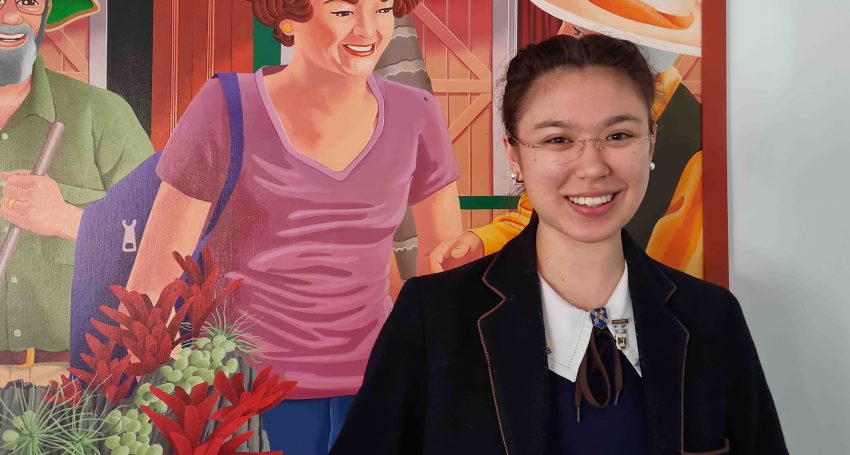A school sacristan’s thoughts on “Embracing Joy”
Reflections
“We must treat each part of the body kindly to maintain a healthy relationship with our whole body. Thus, it only makes sense that we should love and care for everyone. It does not come down to some being more important than others, but rather that we are all people made in God’s image, which is reason enough to celebrate our diversity,” says St Aidan’s Anglican Girls’ School sacristan Monica Behrenbruch

When Archbishop Phillip first introduced the 2022 Diocesan theme, “Being Together: Embracing Joy”, he said:
“’For just as the body is one and has many members, and all the members of the body, though many, are one body, so it is with Christ. For in the one Spirit we were all baptized into one body – Jews or Greeks, slaves or free – and we were all made to drink of one Spirit.’ (1 Corinthians 12.12-13)
“Embracing Joy will focus on celebrating the way that our differences help to make us whole and the importance of diversity.”
I only recently came to this epiphany, with the help of my fellow St Aidan’s sacristan, Beth. We were coincidently discussing how the make-up of a community is much like a body, and, as the above definition reads, “For just as the body is one and has many members, and all the members of the body, though many, are one body.”
While the Church has many important parts, such as the eyes (those who are logical and lead) to see and legs (those who support and encourage others) to take us places, we still need other parts, such as the muscles to help carry and lift the load.
We must treat each part of the body kindly to maintain a healthy relationship with our whole body. Thus, it only makes sense that we should love and care for everyone. It does not come down to some being more important than others, but rather that we are all people made in God’s image, which is reason enough to celebrate our diversity.
Advertisement
Growing up I always had the belief that one must make judgements of people based on first impressions. Perhaps a little wiser now, I have come to realise that people are not always whom you think they are at first. So I started practising differently how I perceive people, and I encourage others to do the same. When I meet someone new now, I see them as a blank slate. I try really hard not to make any assumptions about them based on how they look or even what they say because both looks and words can be deceiving.
People may appear broken, but sometimes our prejudices stop us from seeing how wholesome another person is. Instead, I look at their actions and their values. Sometimes it is not about “celebrating” necessarily, but simply acknowledging. When I am enjoying the company of another person, I will tell them so. If I love something they did, I will tell them so. It is the smaller things that mean so much.
Advertisement
I suppose that because I am young, have grown up in quite a sheltered environment and not had to endure hardships I hear grown-ups speak of, I have never seen or experienced discrimination. I see this as a blessing. I feel open and eager to learn about others. I believe that younger people, untainted with the experiences of those like our parents, have the ability to see outside the box at the potential for change and inclusion.
Interpretation can play a large role in how people might see the Church bringing people of all kinds together. How I like to see it is that church is a place of thanks and praise. When I go to church, I always come home feeling thankful.
People who are not Christians may not see God as a source to show their gratitude, but everyone has things and people whom they are thankful for in their lives. I believe the Church is simply a place where people can feel their gratitude being heard. You can thank a person a hundred times and still they may not hear you, but I believe God hears my prayers of thanks and sends that person love on my behalf. That is my belief on the role of the Church in bringing diverse people together – acknowledging that we all have something and someone we can be thankful for.
I like to think that “diversity” goes beyond simply that we are all different individuals. It is true, yes, that we have traits that are unique to us, but we also share the ability to understand one another.
I made the analogy recently – I like to think we are all a rainbow. We go through all the colours one by one, and find which fits us best. Sometimes we even change our mind, or the shade of red deepens, but regardless of that, we all still have our own spot reserved amongst all the other colours that make up that rainbow. To protect the wonders that God has granted us, we should protect those that help us make up such a colourful community – our neighbours.





